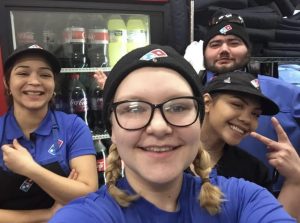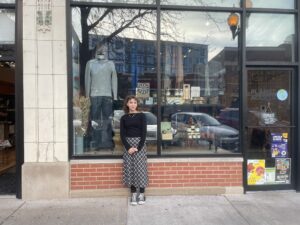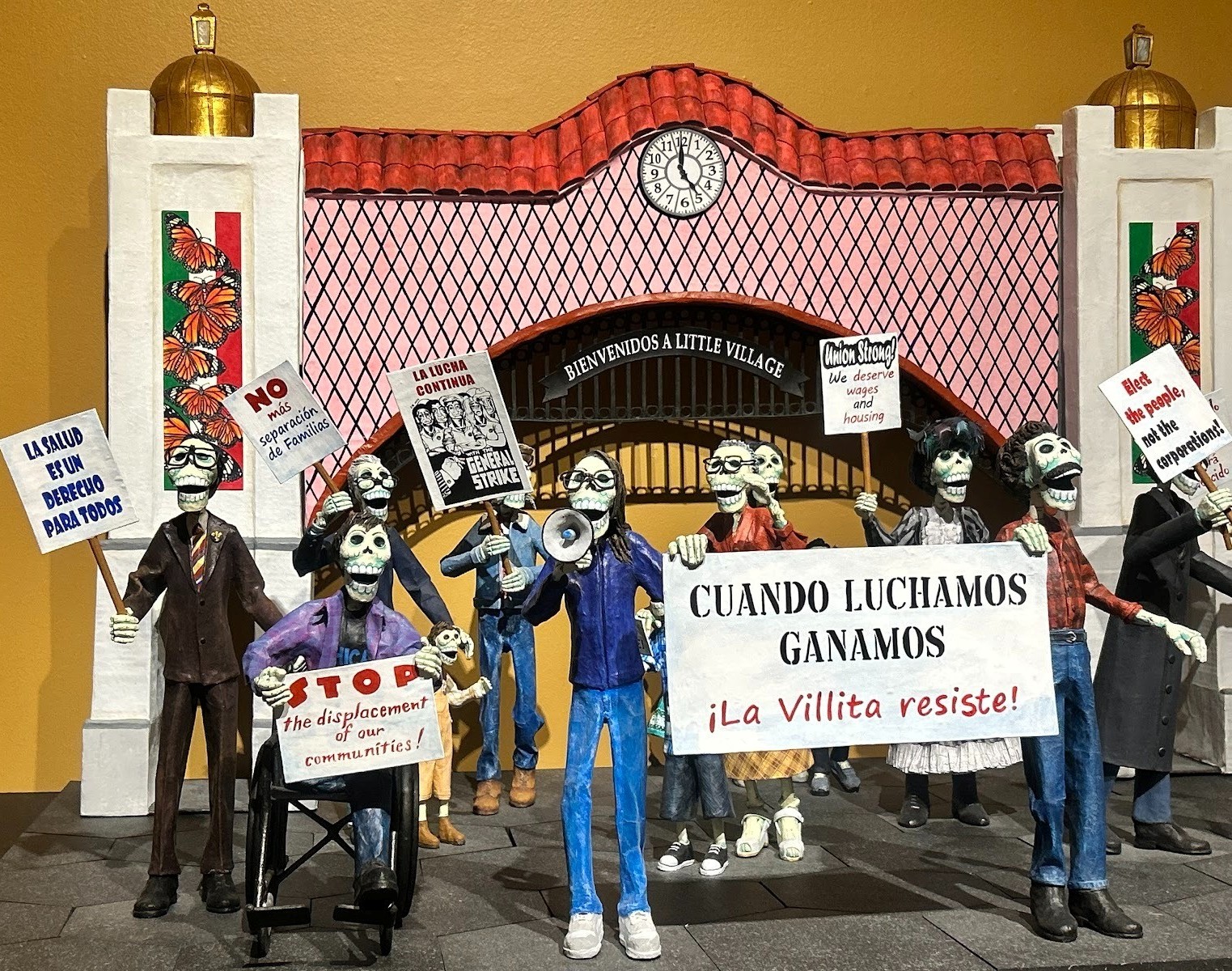Whistling while she shops for groceries, 20-year old Depaul University student Ashley Jacobs weighs the pros and cons between honey-nut and original Cheerios.
“I don’t remember it being so expensive before.” Jacobs said.
The boxes cost a dollar more.
Jacobs used to shop where all other Depaul students with a similar college budget would shop; that is, until the Lincoln Park Dominick’s closed, sending many citizens further to pay a bit more for their groceries.
However, students feel the sting more than other Lincoln Park residents due to the income gap between the two. The median household income for Lincoln Park in 2011 was $88,467. This is a bit higher than Jacobs’ $300 a month allowance she gets from her parents for groceries and recreation.
“We’re students. Most of us don’t have cars or jobs that allow us to shop at these places,” Jacobs said as she signed her name for her groceries on an electronic pad.
In October of 2013, Safeway Inc., the former owner of Dominick’s Finer Foods, announced that it was leaving Chicago due to declining profits.
After a brief transition period during which Lincoln Park’s Dominick’s remained open, a sign appeared in the window that reads, “Whole Foods. Coming Soon. 2015.”
This caused many students in the area to get creative with their methods of obtaining groceries, but Jacobs considers herself blessed.
“I’m lucky enough to have parents that won’t sit idly by while their only child starves to death away at school.”
Jacobs belongs to the majority of students who are simply dealing with the annoyance of having to pay more for groceries. Others don’t share in her fortune.
“I find it funny when I shop at Treasure Island and only leave with a 12-pack of ramen and a 24-pack of soda,” said Omar Faruhk, a 24-year old student at Depaul. “I get a culture shock because most of the things I buy can be found at any convenience store.”
High-end grocery stores such as Treasure Island Foods, Mariano’s Fresh Market and Whole Foods are the options that Lincoln Park residents get to choose from.
Amanda Grayson, 29, assistant manager of Treasure Island Foods in Lincoln Park, notices a slight difference in the amount of visitors.
“We did start seeing a little more of students once Dominick’s left the area, but the difference is pretty minor since Dominick’s was on the other side of town from us,” Grayson said. “The students who come here usually live really close.”
The Dominick’s occupied a building on the corner of Fullerton and Sheffield sharing the block with a CTA Red line and Brown line El station. Some students are using the convenience of public transportation to help them travel far for groceries.
“I think most people who used to go to Dominick’s now use the El to go somewhere else,” said Eileen Dee, a sophomore studying business at Depaul, as she fumbled her four grocery bags from one arm to another. “My roommates and I started shopping at the fresh markets around Southport recently and it’s not a hassle.”
When Dominick’s closed its 72 Chicagoland locations, it also put 6,600 of its unionized employees out of a job. The four stores that were bought by Jewel-Osco, Dominick’s former main competition, will be the only stores carrying over former Dominick’s employees.
But even if Whole Foods in Lincoln Park takes former Dominick’s employees, there’s still a whole year until Whole Foods will have any work to be done.
Some former Dominick’s employees, like 37-year old Michael Han, didn’t wait around for the new Whole Foods. Han works for the new Mariano’s, which opened near Lincoln Park in June.
“A couple of us came here from Dominick’s,” Han said as he swung his lanyard while waiting for the bus. “We were told where to apply and who to contact for job opportunities at the new grocery stores in the area.”
Although Lincoln Park is home to many students, these new grocery stores are a perfect fit for the community. As one of Chicago’s most expensive neighborhoods to live in, Lincoln Park grocery stores won’t have a hard time finding those who are willing to pay a little extra for those tins of giant Greek lima beans or Pritikin canned soup.
With so many high-end grocery stores popping up all over communities, these grocery stores built upon a principle of quality and fresh foods may be a future normal for Chicago.
On July 3, Mariano’s Fresh Markets and the state of Illinois announced plans to use $5 million in government bonds to build more Mariano’s locations in some of Chicago’s more struggling communities known as food deserts.
Each Mariano’s location employs about 415 people, meaning more job opportunities will be coming to any community building a Mariano’s.
Han, having worked at both a Dominick’s and a Mariano’s feels at home with his new position.
“I like it here.” He said. “It’s a new and different kind of grocery store. Who knew shopping could be fun and relaxing?”




















Be First to Comment